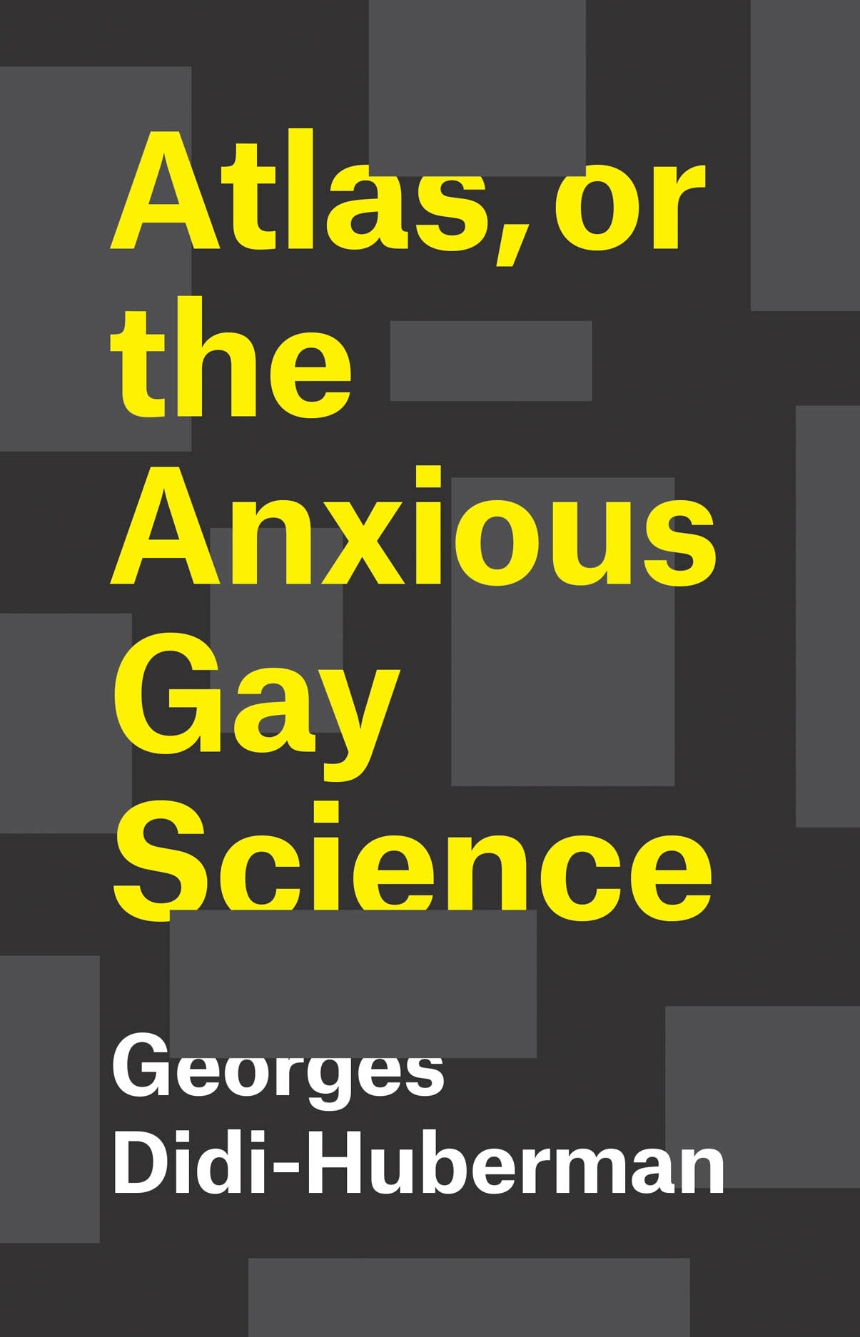Atlas, or the Anxious Gay Science
Aby Warburg’s Mnemosyne Atlas (1925–1929) is a prescient work of mixed media assemblage, made up of hundreds of images culled from antiquity to the Renaissance and arranged into startling juxtapositions. Warburg’s allusive atlas sought to illuminate the pains of his final years, after he had suffered a breakdown and been institutionalized. It continues to influence contemporary artists today, including Gerhard Richter and Mark Dion.
In this illustrated exploration of Warburg and his great work, Georges Didi-Huberman leaps from Mnemosyne Atlas into a set of musings on the relation between suffering and knowledge in Western thought, and on the creative results of associative thinking. Deploying writing that delights in dramatic jump cuts reminiscent of Warburg’s idiosyncratic juxtapositions, and drawing on a set of sources that ranges from ancient Babylon to Walter Benjamin, Atlas, or the Anxious Gay Science is rich in Didi-Huberman’s trademark combination of elan and insight.
In this illustrated exploration of Warburg and his great work, Georges Didi-Huberman leaps from Mnemosyne Atlas into a set of musings on the relation between suffering and knowledge in Western thought, and on the creative results of associative thinking. Deploying writing that delights in dramatic jump cuts reminiscent of Warburg’s idiosyncratic juxtapositions, and drawing on a set of sources that ranges from ancient Babylon to Walter Benjamin, Atlas, or the Anxious Gay Science is rich in Didi-Huberman’s trademark combination of elan and insight.
400 pages | 73 halftones | 5 1/2 x 8 1/2 | © 2018
Art: Art Criticism, Art--General Studies
History: History of Ideas
Table of Contents
List of Figures
I. Disparates: “Reading What Was Never Written”The Inexhaustible, or Knowledge through Imagination
Heritage of Our Time: The Mnemosyne Atlas
Visceral, Sidereal, or How to Read the Liver of a Sheep
Madness and Truths of the Incommensurable
Tables for Collecting the Parceling-Out of the World
Heterotopias, or the Cartographies of Defamiliarization
Leopard, Starry Sky, Smallpox, Spatter
II. Atlas: “Carrying the Whole World of Sufferings”Heritage of Our Time: The Mnemosyne Atlas
Visceral, Sidereal, or How to Read the Liver of a Sheep
Madness and Truths of the Incommensurable
Tables for Collecting the Parceling-Out of the World
Heterotopias, or the Cartographies of Defamiliarization
Leopard, Starry Sky, Smallpox, Spatter
A Titan Bent under the Burden of the World
Gods in Exile and Knowledge in Suffering
Survivals of Tragedy, Aurora of the Anxious Gay Science
“El sueño de la razón produce monstruos”
An Anthropology from the Point of View of the Image
Samples of Chaos, or the Poetics of Phenomena
Points of Origin and Links of Affinity
Atlas and the Wandering Jew, or the Age of Poverty
III. Disasters: “The Dislocation of the World: That Is the Subject of Art”Gods in Exile and Knowledge in Suffering
Survivals of Tragedy, Aurora of the Anxious Gay Science
“El sueño de la razón produce monstruos”
An Anthropology from the Point of View of the Image
Samples of Chaos, or the Poetics of Phenomena
Points of Origin and Links of Affinity
Atlas and the Wandering Jew, or the Age of Poverty
Tragedy of Culture and Modern “Psychomachias”
Explosions of Positivism, or the “Crisis of European Sciences”
Warburg Facing the War: Notizkästen 115–18
The Seismograph Explodes
Panoramic Tables to Return from the Disaster
The Atlas of Images and the Surveying Gaze (Übersicht)
The Inexhaustible, or Knowledge through Re-montage
Explosions of Positivism, or the “Crisis of European Sciences”
Warburg Facing the War: Notizkästen 115–18
The Seismograph Explodes
Panoramic Tables to Return from the Disaster
The Atlas of Images and the Surveying Gaze (Übersicht)
The Inexhaustible, or Knowledge through Re-montage
Bibliographical Note
Notes
Bibliography
Index
Notes
Bibliography
Index
